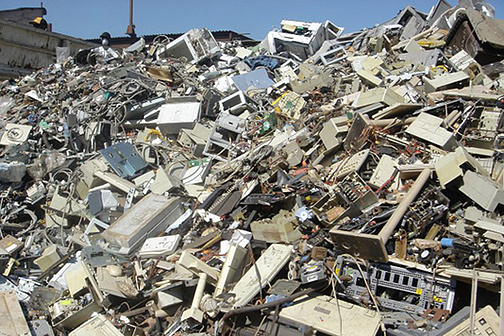The law will make the producers responsible for financing activities to disassemble electrical and electronic equipment (EEE). The principle of extended producer responsibility is applied in most of the EU member states and the companies can choose to fulfill this obligation through individual or collective systems.
There were 23 collective EEE waste management systems in the EU in 2007, based on producer responsibility and financial guarantees of members of collective schemes, and only four centralized systems, based on ECO taxes for placing electrical and electronic products on the market by making payments into the environment funds (in Bulgaria, Latvia, Romania, and Slovakia). In 2009, Slovakia introduced a joint system: the centralized system, where the main role is played by the state, and the management system based on producer responsibility. In the case of the centralized system, the producers or importers pay a tax for every kilogram of electrical and electronic equipment placed on the market into the recycling fund.
Tatiana Tugui said that in order to introduce the principle of extended producer responsibility in Moldova, they should take into account the purchasing capacity and abandon the old habit of keeping the electronic devices when they become nonfunctional. Judging by the conducted waste equipment collection campaigns, it is mainly the public institutions that want to get rid of old equipment. The people or private households do not yet have such a habit.
“The law provides more options for applying the extended producer responsibility by creating individual or collective collecting and disassembling systems and for negotiating the financial contribution for ensuring the collection of this type of waste with the local public authorities. The companies can create there own systems through the agency of commercial centers,” stated Tatiana Tugui.
She added that in Moldova there are over 100 importers of electronic products. Those who sell them will be responsible for collecting the waste. The experience of the EU member states shows that the introduction of the principle of extended producer responsibility didn’t affect the prices of the goods as the costs are estimated at €2-30, which is 1-3 % of the selling price.
The measures proposed in the Waste Law form part of the water management policy defined in the waste management strategy of 10.04.2013 and of the Association Agreement between the EU and Moldova that is to be signed on June 27.




